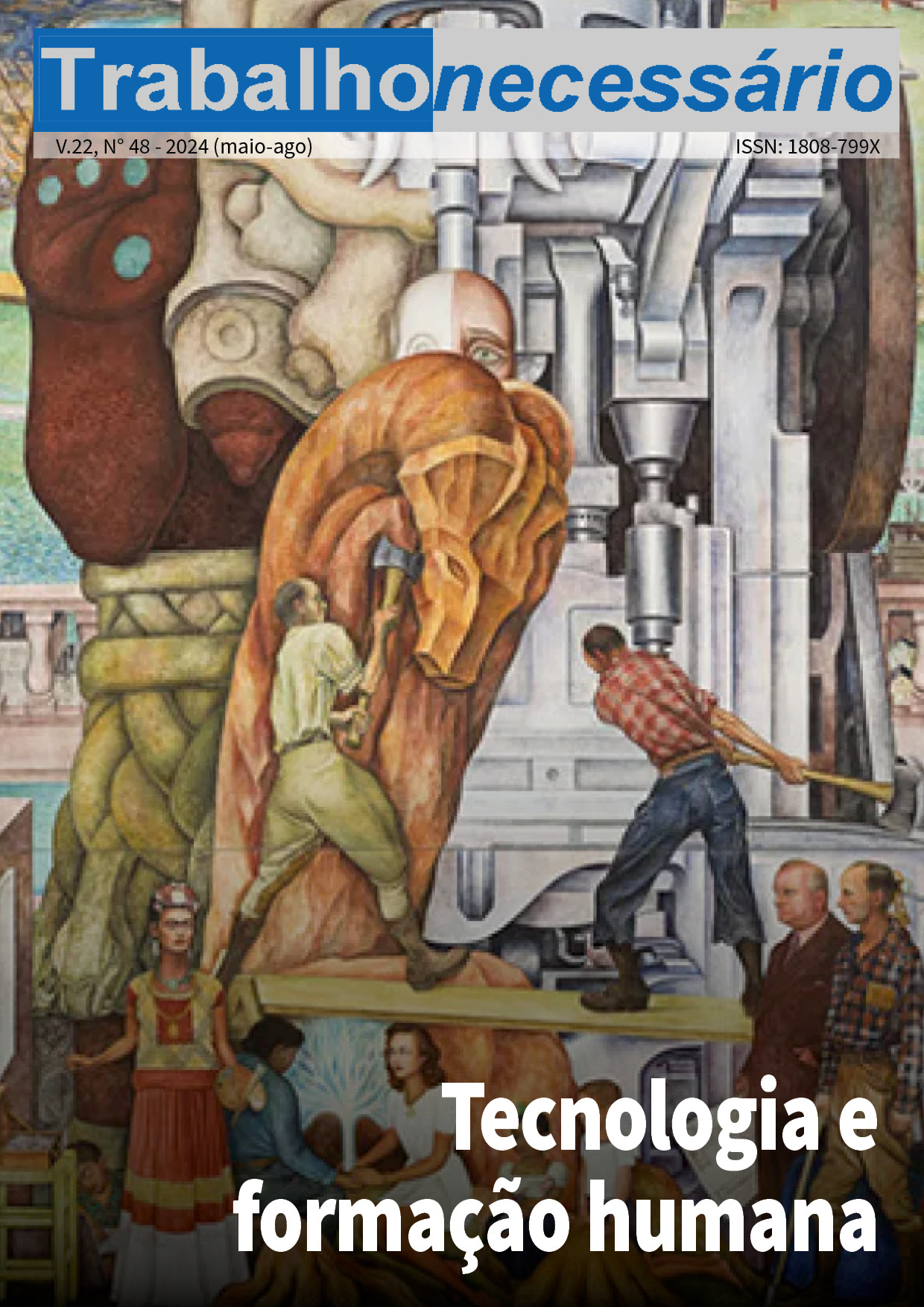TRAINING OF ECONOMISTS: ECOLOGICAL DEFICITS AND WEAKNESSES
DOI:
https://doi.org/10.22409/tn.v22i48.61405Abstract
The article examines the current mismatch between the scientific training of economists and the accelerated transformation of their object, both in its socio-economic dimension and in its natural dimension. Oriented towards the ecological theme, the discussion presents the main traditions of economic thought dedicated to it, pointing out how the limitations and possibilities of each one reflect imperatives and impossibilities of the object of investigation to which they are dedicated. This provides a key to understanding some decisive training deficits that populate the current training of economists.
Keyword: Economics training; Environmental economics; Ecological economics; Marxist ecology.
Downloads
References
CALDWELL, B. Beyond positivism: economic methodology in the twentieth century. Londres: Routledge. 2003.
CARROLL, S. The biggest ideas in the universe: space, time, and motion. Nova York: Dutton. 2022.
DALY, H; FARLEY, J. Ecological Economics: principles and aplications. Washington: Island Press. 2010.
FOSTER, J. B. A ecologia de Marx. Rio de Janeiro: Civilização Brasileira. 2005.
GEORGESCU-ROEGEN, N. O decrescimento: entropia, ecologia, economia. Lisboa: Instituto Piaget. 2008.
IPCC. Global warming of 1.5 C: an IPCC special report on the impacts of global warming of 1.5 °C above pre-industrial levels. Genebra. 2018.
IPCC. Synthesis report of the IPCC sixth assessment report (AR6): summary for policymakers Genebra. 2023.
LUKÁCS, G. Para uma ontologia do ser social II. São Paulo: Boitempo. 2013.
MALM, A. Fossil capital: the rise of steam power and the roots of global warming. Londres: Verso. 2016.
MARX, K. O capital (Livro I) (Vol. I). São Paulo: Boitempo. 2013.
MARX, K; ENGELS, F. A ideologia alemã. São Paulo: Boitempo. 2007.
MEDEIROS, J. L. A economia diante do horror econômico. Niterói: Eduff. 2013.
PINTO JR, H. (org.). Economia da energia. Rio de Janeiro: Elsevier Editora. 2007.
ROCSTRÖM, J. et al. “A safe operating space for humanity”. Nature, vol. 461, p. 472-475. 2009.
SÁ BARRETO, E. O capital na estufa: para a crítica da economia das mudanças climáticas. Rio de Janeiro: Consequência. 2018.
SÁ BARRETO, E. Ecologia marxista para pessoas sem tempo. São Paulo: Usina. 2022.
STEFFEN, W. et al. “Planetary boundaries: guiding human development on a changing planet”. Science, vol. 347, n. 6223. 2015.
Published
How to Cite
Issue
Section
License
Copyright (c) 2024 Revista Trabalho Necessário

This work is licensed under a Creative Commons Attribution 4.0 International License.
DECLARAÇÃO DE DIREITO AUTORAL
Esta Revista é licenciada por Creative Commons (Atribuição 4.0 Internacional).
O processamento e a publicação dos trabalhos não implicam em nenhum tipo de custo para os autores.
Os autores têm autorização para assumir contratos adicionais separadamente, para distribuição não-exclusiva da versão do trabalho publicada nesta revista (ex.: publicar em repositório institucional ou como capítulo de livro), com reconhecimento de autoria e publicação inicial nesta revista.
DECLARACIÓN DE DERECHO AUTORAL
Esta revista es licenciada por Creative Commons (Atribuición 4.0 Internacional).
Lo procesamiento y la publicación de los trabajos no implica en ninguno tipo de costo para los autores.
Los autores tienen permiso para asumir contratos adicionales separadamente, para distribución no exclusiva de la versión del trabajo publicada en esta revista (ej.: publicar em repositorio institucional o como capítulo de un libro), con reconocimiento de autoria y publicación inicial en esta revista.
DECLARATION OF COPYRIGHT
The Journal is licensed by Creative Commons (Attribution 4.0 International).
Processing and publication of the work do not imply any cost to the authors.
The authors are allowed to take on additional contracts separately, non-exclusive distribution of the version of the paper published in this journal (ex.: publish in institutional repository or as a chapter of a book), with an acknowledgment of its initial publication in this journal.
Termo de Transferência de Direitos Autorais
Como condição para a submissão, os autores devem declarar a autoria do trabalho e concordar com o Termo de Cessão de Direitos Autorais, marcando a caixa de seleção após a leitura das cláusulas.
- Declaro que participei da elaboração do referido artigo / resenhas ou de outros elementos para a composição das seções da Revista TrabalhoNecessário-TN, em parte ou no todo; que não omiti qualquer ligação ou acordo de financiamento entre os autores e instituições ou empresas que possam ter interesses na publicação desse trabalho;
- Declaro tratar-se de texto original, isento de compilação, em parte ou na íntegra, de minha autoria ou de outro(os) autor (es) e que segui(mos) as diretrizes (normas e instruções) para os autores;
- Declaro que o texto não foi enviado a outra revista (impressa ou eletrônica) e não o será enquanto a possibilidade de sua publicação esteja sendo considerada pela Revista Trabalhonecessário;
- Declaro que transfiro os direitos autorais do trabalho especificado para a Revista TrabalhoNecessário, comprometendo-me a não reproduzir o texto, total ou parcialmente, em qualquer meio de divulgação (ex.: publicar em repositório institucional ou como capítulo de livro), impresso ou eletrônico, sem prévia autorização dessa Revista, com reconhecimento de autoria e publicação inicial nesta revista.
- Declaro que tenho conhecimento que a cessão do texto à Revista TrabalhoNecessário-TN é gratuita e, portanto, não haverá qualquer tipo de remuneração pela sua utilização.







